Living in Merida: Jewel of the Yucatan
Mérida is a city located in the Yucatán Peninsula of Mexico. It is the capital city of the state of Yucatán and is known for its rich history, vibrant culture, and well-preserved colonial architecture. Often referred to as the safest city in Mexico, and officially named the second safest city in North America (with Quebec City in first place). Also considered one of the prettiest places in Mexico with its stunning Iberian Peninsula architecture styles. This isn’t a beach destination, but rather a charming city with a lot of restaurants and cultural places to explore. View Merida homes for sale.
GEOGRAPHY & CLIMATE
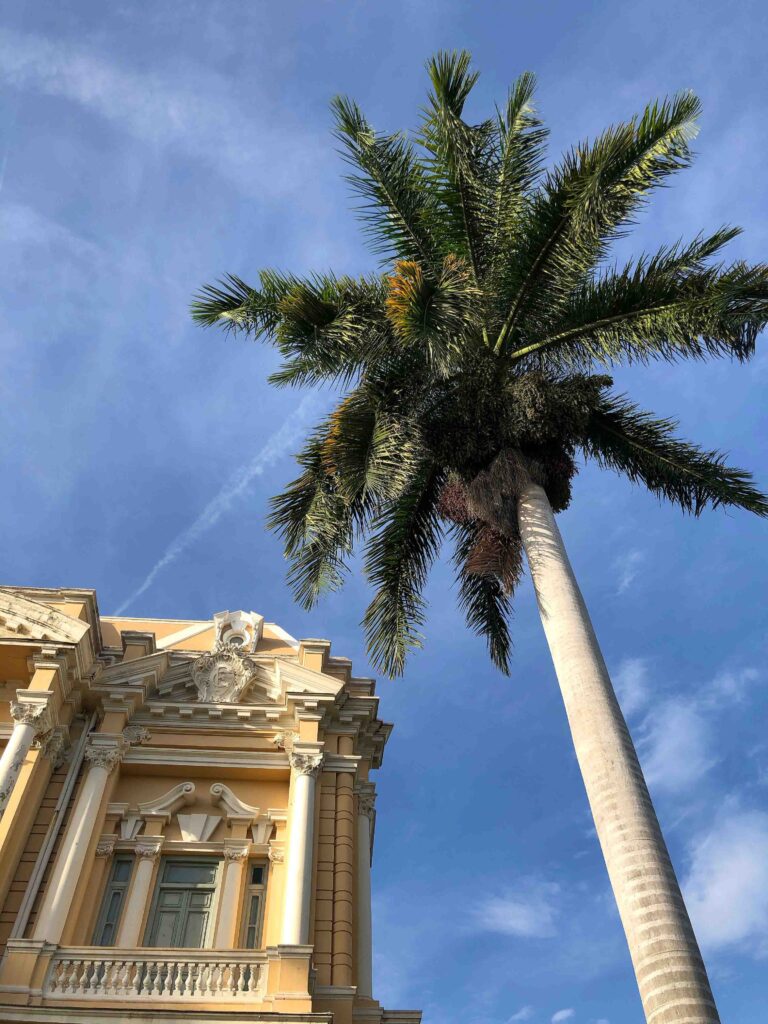
Geography
Mérida is situated approximately 35 kilometers (22 miles) inland from the Gulf of Mexico. It lies at the northern edge of the Yucatán Peninsula, making it relatively close to the coastline but not directly on the shore. The region is known for its cenotes, natural sinkholes formed by the collapse of limestone caves, which provide a vital source of fresh water. The area around Mérida is also covered by tropical vegetation, including forests and savannas.
Topography: The city’s terrain is relatively flat, with an average elevation of about 11 meters (36 feet) above sea level. Mérida is located on the lowland plains of the Yucatán Peninsula, which are primarily composed of limestone bedrock.
Cenotes: The Yucatán Peninsula is famous for its cenotes, natural sinkholes that provide access to underground water sources. These cenotes are formed by the collapse of limestone caves, revealing pools of fresh water. Cenotes hold great ecological and cultural significance in the region, serving as both water sources and sacred sites for the ancient Maya civilization and the present-day inhabitants.
Hydrology: Mérida is part of the Yucatán Peninsula’s unique hydrological system, which lacks surface rivers due to the porous limestone bedrock. Instead, water flows through underground rivers and channels, connecting to cenotes and underground caves. The availability of these cenotes has been essential for the settlement and development of the city.
Vegetation: The surrounding region of Mérida features tropical vegetation, including areas of forests and savannas. The Yucatán Peninsula is home to various plant species adapted to the dry and humid conditions of the area.
Climate
Mérida has a tropical climate, with hot and humid conditions prevailing throughout the year. The city experiences distinct wet and dry seasons:
Dry Season (November to April): This period is considered the high tourist season in Mérida, as the weather is generally pleasant with lower humidity. Days are warm, and temperatures can range from around 20°C (68°F) at night to 30°C (86°F) or higher during the day.
Wet Season (May to October): The wet season in Mérida brings higher humidity and frequent rain showers. Rainfall peaks in June, September, and October. During this time, temperatures can be slightly cooler due to the rain, but it remains humid, with average daytime temperatures ranging from 25°C (77°F) to 35°C (95°F).
It’s worth noting that the Yucatán Peninsula is prone to tropical storms and hurricanes, especially during the Atlantic hurricane season, which runs from June to November. Visitors should be aware of weather forecasts and take necessary precautions if traveling during this period.
HISTORY & CULTURE
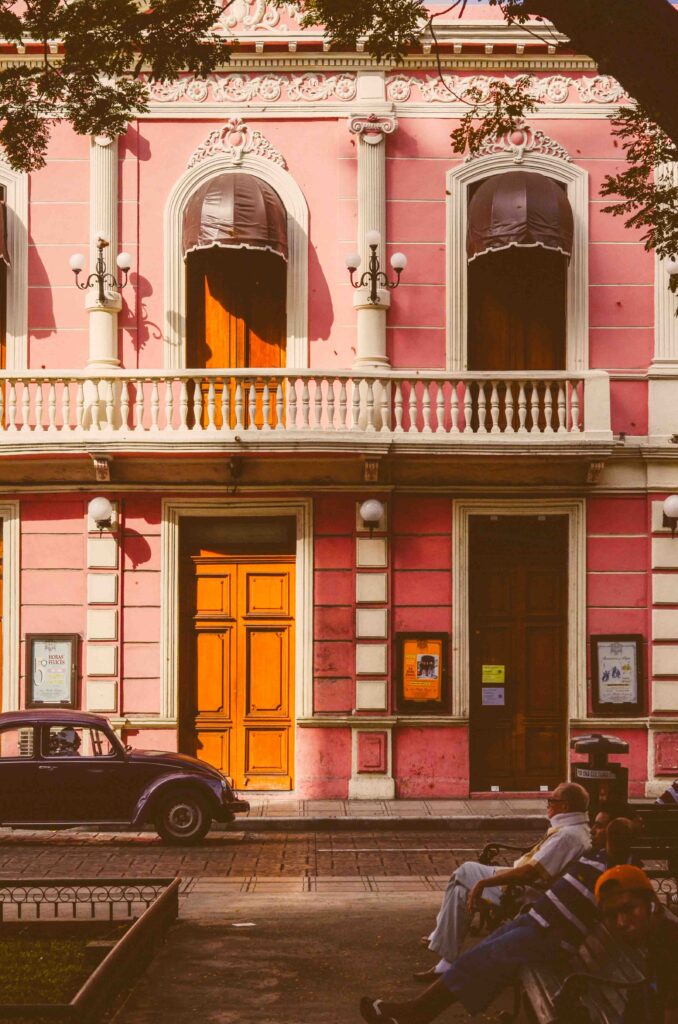
Culture
Today, Mérida is a vibrant city that combines its historical roots with modern influences,
making it a fascinating destination for travelers looking to explore the rich history and unique culture of the Yucatán Peninsula.
Mayan Heritage: Despite the Spanish colonization, Mérida and the Yucatán Peninsula have retained strong traces of their ancient Mayan heritage. Mayan traditions, language, and customs continue to play a significant role in the culture of the region. Visitors can explore ancient archaeological sites such as Uxmal, Chichen Itza, and Mayapan, which are all accessible from Mérida.
Music and Dance: Music and dance are integral parts of Mérida’s culture. Traditional music often includes a mix of indigenous and Spanish influences, featuring instruments like the jarana (a small guitar-like instrument) and marimba. Traditional dances, such as the Jarana and the Vaquería, are still performed during festivals and celebrations.
Festivals and Celebrations: Mérida hosts numerous festivals and cultural events throughout the year. Some of the most important celebrations include Hanal Pixán (Day of the Dead), which is a unique Yucatecan version of this traditional Mexican holiday, and the vibrant Carnival festivities held before Lent.
Cuisine: Yucatecan cuisine is renowned for its distinctive flavors and ingredients. Dishes often blend Mayan, Spanish, and Lebanese influences. Popular dishes include cochinita pibil (marinated pork), papadzules (enchiladas with pumpkin seed sauce), and sopa de lima (lime soup). Mérida’s food scene is a delight for food enthusiasts seeking to explore regional specialties.
Colonial Architecture: Mérida boasts a rich architectural heritage with well-preserved colonial buildings. The historic center is home to charming plazas, churches, and mansions, showcasing Spanish colonial-style architecture. The Mérida Cathedral, located on the Plaza Grande, is one of the city’s most iconic landmarks.
Art and Craftsmanship: Mérida has a thriving arts and crafts scene. Local artisans produce traditional crafts like hammocks, embroidery, and pottery. The city’s galleries and art studios showcase contemporary art by local and international artists.
History
The history of Mérida dates back to the time of the ancient Maya civilization. The area around Mérida was originally inhabited by the Maya people, who established various settlements in the region. The city of T’Hó, known as Ichcaanziho in Maya, was a prominent Maya city located where modern-day Mérida stands.
In 1542, Spanish conquistadors led by Francisco de Montejo arrived in the Yucatán Peninsula and defeated the Maya people. They established the Spanish city of Mérida on the site of the former Maya city of T’Hó. The Spanish influence is still evident in the city’s architecture, layout, and culture.
During the colonial period, Mérida thrived as a major administrative and cultural center. It became an important hub for the exploitation of resources and the spread of Christianity in the Yucatán Peninsula. The wealth generated from industries like henequen (a type of agave plant used for rope and textiles) contributed to the development of the city and the construction of many of its historical buildings.
ADVENTURE & ENTERTAINMENT
Sports & Adventure
Mérida and its surrounding region offer various sports and adventure activities for locals and visitors alike. Here are some of the sports and adventure options you can enjoy in Mérida:
Cenote Swimming and Diving: The Yucatán Peninsula is famous for its cenotes, natural sinkholes filled with crystal-clear fresh water. Swimming and snorkeling in these cenotes offer a unique and refreshing adventure. Some cenotes are also suitable for more experienced divers to explore the underwater cave systems.
Eco-Tours and Nature Exploration: Mérida is surrounded by lush jungles and diverse ecosystems. Eco-tours and nature exploration activities allow you to discover the region’s flora and fauna. Guided tours might include birdwatching, hiking, and exploring the wildlife in the area.
Mayan Ruins and Archaeological Sites: The Yucatán Peninsula is home to numerous ancient Mayan ruins and archaeological sites. Exploring these sites, such as Chichen Itza, Uxmal, and Mayapan, offers a chance to immerse yourself in the region’s fascinating history and culture.
Biking: Mérida has a growing cycling culture, and you can rent bikes to explore the city or join guided bike tours to discover its highlights. There are also some rural biking routes that take you through the countryside and nearby archaeological sites.
Water Sports: While Mérida itself is not on the coast, you can venture to the nearby coastal areas for various water sports such as kiteboarding, paddleboarding, and kayaking.
Horseback Riding: Horseback riding excursions are available in the Yucatán countryside. Ride through picturesque landscapes and explore the surroundings from a different perspective.
Hot Air Balloon Rides: For a unique and breathtaking experience, consider taking a hot air balloon ride over the Yucatán Peninsula. The panoramic views of the landscapes and archaeological sites from above are truly unforgettable.
Adventure Parks: There are adventure parks near Mérida that offer activities like zip-lining, rope courses, and ATV rides, providing thrilling experiences for adventure seekers.
Golf: If you enjoy golf, you can find golf courses in and around Mérida where you can enjoy a leisurely round of golf in beautiful surroundings.
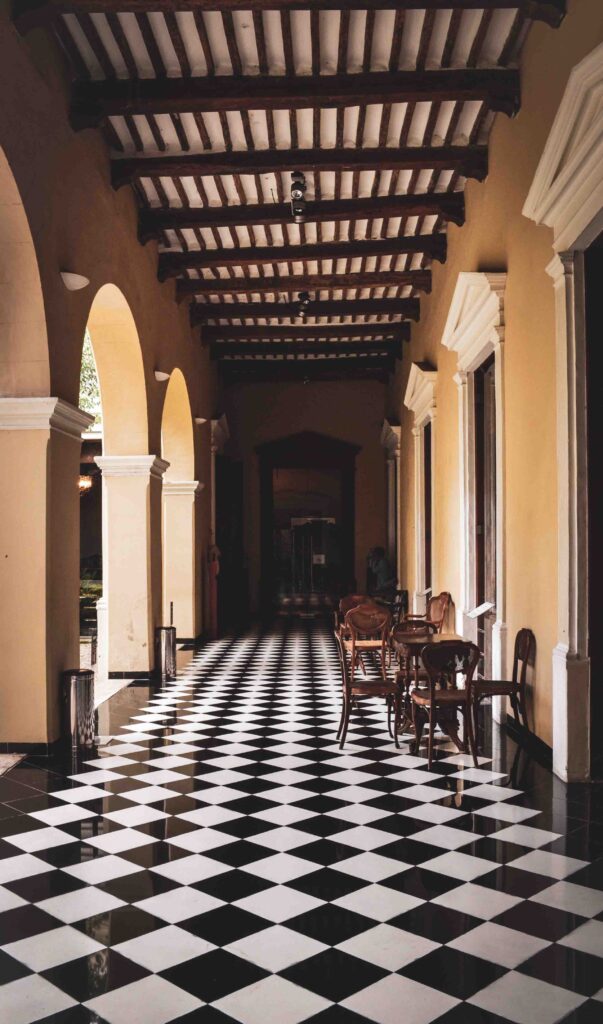
RENTALS & REAL ESTATE MARKET
Mérida has been experiencing a growing real estate market, attracting both Mexican and international buyers. The city’s unique blend of colonial charm, rich culture, and affordable living costs has made it an appealing destination for retirees, expatriates, and investors.
Rental Market: Mérida offers a variety of rental options, including apartments, houses, and colonial-style homes. Rental prices can vary depending on the neighborhood, property size, and amenities. The historic center and popular neighborhoods tend to have higher rental rates compared to areas farther from the city center.
Real Estate Prices: The real estate market in Mérida has seen steady growth, with property prices increasing in recent years. However, compared to other popular tourist destinations in Mexico and North America, Mérida’s real estate prices are relatively affordable, making it an attractive option for those seeking a more affordable retirement or second-home destination.
Neighborhoods: Mérida has a variety of neighborhoods to choose from, each offering a unique atmosphere and lifestyle. The historic center (Centro) is known for its colonial architecture and proximity to cultural attractions. Other popular neighborhoods include Santiago, Santa Ana, and Itzimná, each with its own charm and amenities.
Types of Properties: In Mérida, you can find a range of properties, from colonial-style homes and modern condos to spacious haciendas with large gardens. Some properties may require renovations, while others are move-in ready.
Foreign Ownership: Foreigners can own property in Mérida, including real estate near the coast. However, it is essential to follow Mexican regulations and work with a reputable real estate agent and a notary public to ensure a smooth and legal transaction.
Real Estate Agents: When looking for properties in Mérida, it’s advisable to work with a local real estate agent who has expertise in the area and can guide you through the process.
Check out current Merida real estate listings and get in touch with a Merida agent via Far Homes.
COST OF LIVING
Mérida is known for its relatively affordable cost of living compared to many other popular tourist destinations in Mexico and North America. The cost of living can vary depending on individual lifestyles and preferences, but overall, Mérida offers a high quality of life at a reasonable price.
Housing: The cost of housing in Mérida can vary widely depending on the neighborhood and the type of property. In general, rental costs are more affordable compared to major cities in Mexico and the United States. For example, renting a one-bedroom apartment in the city center may cost around $300 to $600 USD per month, while rental costs in suburban areas can be even lower.
Food: Eating out at local restaurants and markets can be very affordable. Traditional Yucatecan cuisine, street food, and local markets offer reasonably priced meals. Cooking at home and purchasing groceries from local markets can also help keep food costs low.
Transportation: Public transportation in Mérida is relatively inexpensive, with buses being the most common mode of transportation. Taxis are also affordable compared to many other cities. Additionally, owning a car in Mérida can be affordable, including fuel costs and maintenance.
Utilities: Utility costs (electricity, water, and internet) are generally reasonable in Mérida. However, usage habits and the size of the property can influence the monthly expenses.
Healthcare: Healthcare costs in Mexico, including Mérida, are often more affordable than in many other countries. The city has a good healthcare system, and private health insurance is generally less expensive than in countries like the United States.
Entertainment and Leisure: Mérida offers a variety of cultural events, festivals, and activities at affordable prices. Many museums, parks, and entertainment venues have low or no entrance fees.
It’s important to keep in mind that the cost of living can fluctuate over time and can be influenced by changes in the local economy and other factors. Additionally, personal spending habits and lifestyle choices will also impact individual cost-of-living experiences.
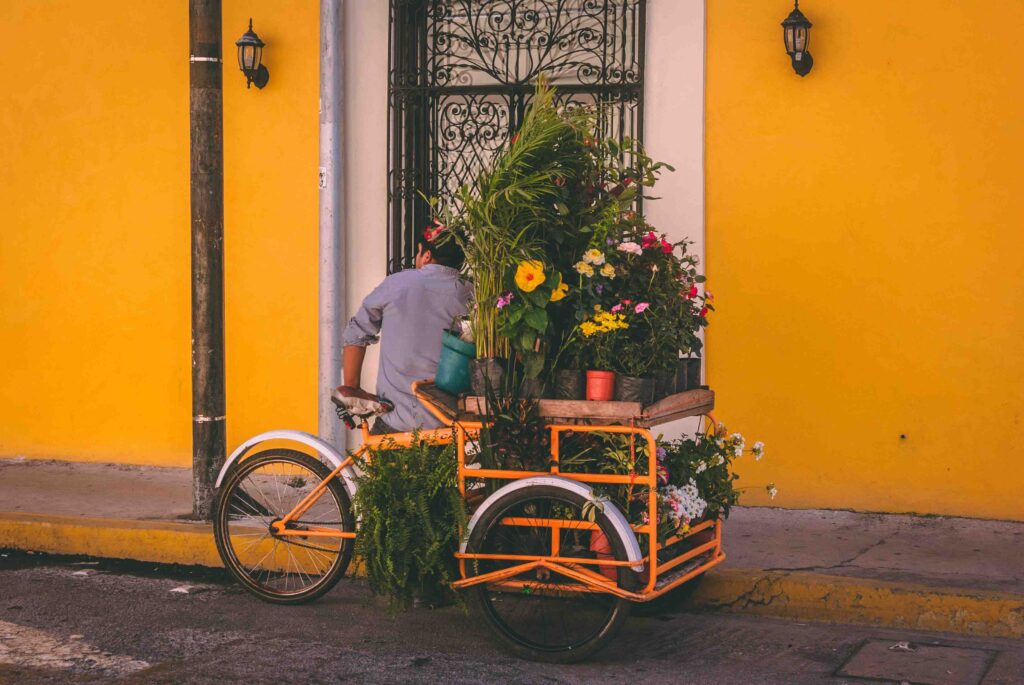
SAFETY & TRANSPORTATION
Mérida is generally considered a very safe city for residents and tourists. However, like any other place, it is essential to remain vigilant and take necessary precautions to ensure personal safety. Here are some considerations regarding safety and transportation:
Safety
Low Crime Rates: Mérida is known for having lower crime rates compared to many other cities in Mexico. The city has earned a reputation for being safe and welcoming to visitors.
Common Safety Precautions: While Mérida is relatively safe, it’s always a good idea to practice common safety precautions. Avoid displaying valuables openly, especially in crowded areas. Be cautious in unfamiliar neighborhoods, especially at night. Use well-lit and busy streets when walking, and consider using official taxis or ride-sharing services instead of hailing random cabs.
Health Precautions: Mexico, including Mérida, may have different health risks than your home country. It’s important to be mindful of food and water safety to avoid foodborne illnesses. Staying hydrated and wearing sunscreen are also important, especially due to the city’s hot and humid climate.
Transportation
Public Transportation: Mérida has an extensive public transportation system with buses that connect various parts of the city. The buses are affordable and a common mode of transportation for locals. However, be cautious of pickpockets in crowded buses, especially during peak hours.
Taxis: Taxis are widely available in Mérida and are generally safe to use. It’s advisable to use official taxi stands or reputable taxi services to ensure a safe and reliable ride. Many taxis do not have meters, so it’s essential to agree on the fare before starting the journey.
Car Rental: Renting a car can be a convenient way to explore the city and its surroundings. Roads in Mérida are generally well-maintained, but driving practices and traffic conditions may differ from what you are used to, so exercise caution while driving.
Uber and Ride-Sharing: Uber and other ride-sharing services operate in Mérida, providing a safe and convenient alternative to traditional taxis.
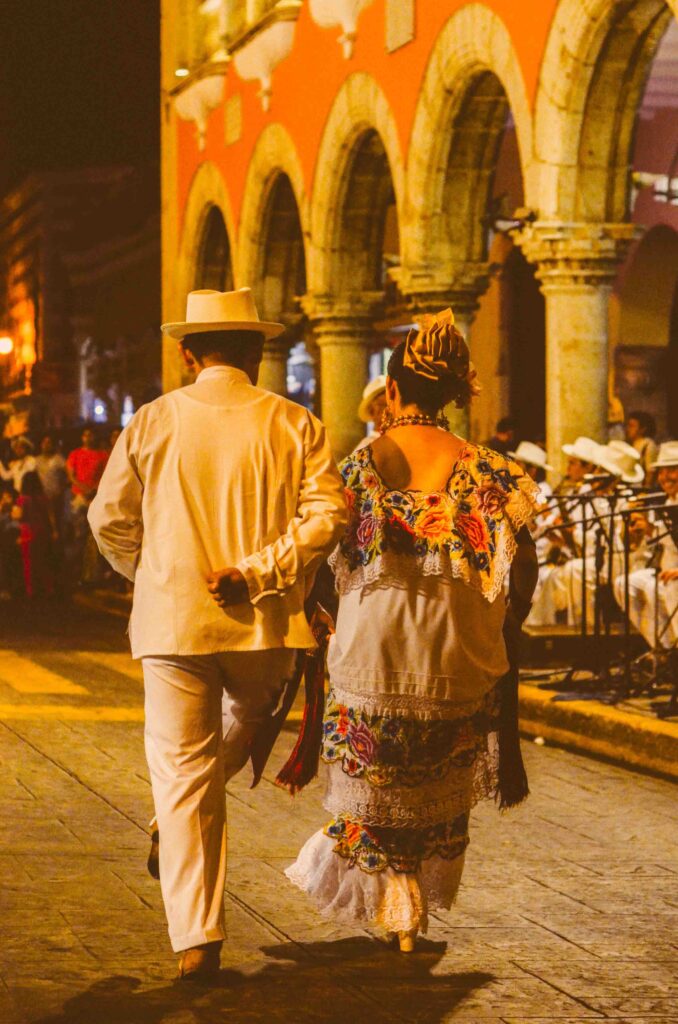
SCHOOL & EDUCATION
Mérida offers a range of educational opportunities, including public and private schools, universities, and language schools. The city is known for having a good education system that caters to both locals and international students. Here are some key points about schools and education in Mérida:
Public Schools: Mérida has a network of public schools, including primary and secondary schools, which are operated and funded by the government. These schools follow the Mexican curriculum and are free for Mexican citizens. Public schools are an excellent option for families seeking an affordable education and an immersive experience for their children.
Private Schools: There are also numerous private schools in Mérida, offering primary, secondary, and high school education. Private schools often provide bilingual education (Spanish and English) and may follow international curricula such as the International Baccalaureate (IB) or the American curriculum. Tuition fees vary depending on the school and its facilities.
Universities: Mérida is home to several universities that offer a wide range of academic programs. The Universidad Autónoma de Yucatán (UADY) is the main public university in the state and offers various undergraduate and graduate programs. Additionally, there are private universities and specialized institutions offering degrees in fields like medicine, engineering, business, and more.
Language Schools: Mérida is a popular destination for language learners, particularly those interested in learning Spanish. There are numerous language schools and immersion programs available to cater to international students seeking to improve their language skills.
HOSPITALS & HEALTH CARE
Mérida has a well-developed health care system, with a range of public and private hospitals, clinics, and medical facilities that offer quality medical services to residents and visitors. The city is known for its modern medical infrastructure, qualified healthcare professionals, and affordable health care options. Here are some key points about hospitals and health care in Mérida:
Public Health Care: The Mexican government provides public health care services through the Mexican Social Security Institute (IMSS) and the Institute of Security and Social Services for State Workers (ISSSTE). These institutions offer health care coverage to Mexican citizens and formal sector employees. While public health care can be affordable, wait times may vary depending on the facility and the urgency of the medical condition.
Private Hospitals: Mérida has several private hospitals that cater to both local residents and medical tourists. These hospitals offer high-quality medical services, state-of-the-art equipment, and English-speaking staff. Private hospitals in Mérida are well-regarded for their professional standards and specialized medical care.
Medical Tourism: Mérida has become a popular destination for medical tourism, attracting patients from other countries seeking medical treatments at more affordable costs compared to their home countries. Many private hospitals offer packages for medical tourists, including services such as cosmetic surgery, dental care, and various medical procedures.
Specialty Clinics: The city also hosts specialty clinics that focus on specific medical areas, such as fertility treatment, plastic surgery, and holistic medicine.
Pharmacies: Mérida has numerous pharmacies where you can purchase prescription and over-the-counter medications. Pharmacists are often knowledgeable and can offer advice on common ailments and medications.
Health Insurance: Private health insurance is available in Mérida and is often more affordable than in other countries. Many expatriates and long-term visitors opt for private health insurance to have access to private medical facilities and services.
